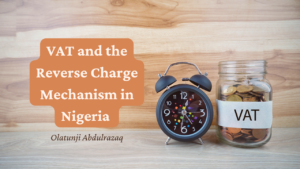Tanzania: New VAT Act

The new Tanzanian Value Added Tax Act (“the new Act”), which received Presidential assent on December 11, 2014, came into effect on July 1, 2015. The new Act, which is aimed at broadening the tax base, adopting international best practice and simplifying VAT administration and management, repeals and replaces the Value Added Tax Act 1997 (“1997 Act”).
At a seminar hosted by the Tanzania Revenue Authority (“TRA”) in Arusha to educate taxpayers on the new legislation, the TRA Principal Officer Hamisi Lupenja said that the new Act is expected to improve the Government’s revenue collection by expanding the tax base to include most economic activities. It also aims to resolve controversial issues not addressed by the 1997 Act.
The new Act specifically addresses the VAT treatment of new business sectors such as telecommunications and includes detailed definitions of electronic and telecommunication services. In principle, such services are taxed according to the destination principle, i.e. where final consumption occurs, as opposed to where the value was added (the origin principle). This is in line with the International VAT/GST Guidelines published by the Organisation for Economic Cooperation and Development (OECD)’s Global Forum on VAT in 2014. The supply of services shall be zero-rated if the customer is outside Tanzania at the time of supply and effectively uses or enjoys the services outside Tanzania and the services are neither directly related to land situated in Tanzania nor physically performed on goods situated in Tanzania at the time of supply.
Various exemptions, as well as the special reliefs available in terms of the Third Schedule to the 1997 Act, have been scrapped. However, in support of the country’s extractive industries, VAT reliefs granted under the 1997 Act in respect of agreements entered into by the government for exploration and prospecting of minerals or oil and gas shall continue to apply.
Insurance services, other than health and life insurance or reinsurance, are also taxable in terms of the new Act. According to the VAT Regulations (2015) published in July 2015 (the Regulations), an insurer must account for VAT on the net premium amount received by him in relation to a contract of insurance, which is defined as the total premiums received in a given tax period less payments made for settlement of any claim arising from an insurance contract and reinsurance premiums paid for that period.
Where an employer makes a taxable supply to an employee as part of the employee’s salary or because of the employment relationship, the supply shall be treated as having been made for consideration equal to the fair market value of the supply. In effect, benefits in kind which are normally subject to VAT, will be subject to VAT if provided to staff members.
The restrictions on the claiming of input credits have been expanded to include goods and services used to provide entertainment, unless in the ordinary course of the person’s economic activity, memberships of a sporting, social, or recreational club, association, or society and the acquisition or import of a passenger vehicle, its spare parts or repair and maintenance services for such passenger vehicle, unless the person’s economic activity involves dealing in, hiring out, or providing transport services in passenger vehicles and the vehicle was acquired for that purpose.
In terms of the new Act a Tanzanian taxpayer will only be required to account for VAT on imported services if such taxpayer makes exempt supplies of at least 10{780f53c297e2c008074d23b865a0ce0b35a4f08852d8e1e49466a5a902c4e44e} of its total supplies. A nonresident who carries on an economic activity in mainland Tanzania without having a fixed place of business there, and makes a taxable supply for which such nonresident is liable to pay VAT is required to appoint a local VAT representative and, if required by the Commissioner General, lodge a security. Such VAT agent is required to provide proof of having a Taxpayer Identification Number, a good tax compliance history, the capacity to deal with the VAT affairs of the nonresident and fixed, well known and accessible place of business. A nonresident and his VAT representative are jointly and severally liable for any VAT liabilities of the nonresident.
Provision is made for the deferral of VAT on imported capital goods, subject to approval by the TRA and the provision of specified security. In terms of the Regulations, an application for such deferment is limited to items with an individual VAT value of at least 20 million Tanzanian shillings ($9,207). The deferred VAT must be accounted for as output tax and input tax in the same VAT return of the tax period in which the capital goods were imported.
Companies whose turnover relates more than 50{780f53c297e2c008074d23b865a0ce0b35a4f08852d8e1e49466a5a902c4e44e} to zero-rated supplies will now automatically qualify for refunds on a monthly basis, but the time limit for the TRA to respond to other refund requests has been increased from 30 to 90 days.
The Regulations increase the current registration threshold from 40 million shillings ($18,415) to 100 million shillings ($46,039) per annum and require any taxpayer carrying forward a VAT input tax credit from June 30, 2015 (under the 1997 Act) to submit a notification of such credit in the prescribed form to the TRA by no later than July 31, 2015. Following the approval from the TRA, the brought forward input tax credit can either be offset against tax payable or applied to be refunded subject to the conditions stipulated in the new VAT Act. The practical compliance with this requirement is problematic, given that the Regulations were only published at the end of July.




